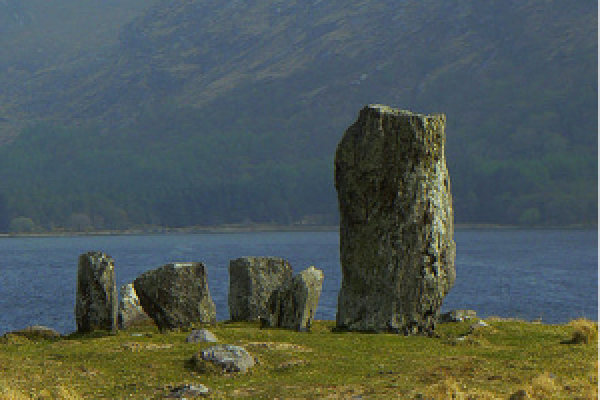
Learn Survival Irish
Wikitravel users have collectively created a free Irish phrasebook with the goal of making it possible for travelers to "get by" while traveling in areas where Irish is spoken.
Wikitravel phrasebooks are available in many languages and each one varies in depth and detail. Most of the phrasebooks include a pronunciation guide, a general phrase list, information about dates and numbers, a color list, transportation-related phrases, vocabulary for shopping and phrases for eating and drinking. Some are even more in depth, and all are free!
From Website
Irish is one of the three Goidelic languages, the others being Scottish Gaelic and Manx. This Goidelic branch together with the Brythonic branch (Welsh, Cornish and Breton) form the Celtic language family. These are spoken in parts of the Ireland, Britain and France.
Some common features of the Celtic languages which strike learners as odd are:
- 'mutations': sounds change, often at the beginning of words, as part of the grammar, e.g. cat 'cat', but mo chat 'my cat'
- the verb is usually at the beginning of the sentence
- prepositional pronouns that are conjugated, e.g. agam 'at me', agat 'at you', etc.
Irish (Gaeilge) is a Goidelic language of the Indo-European language family, originating in Ireland and historically spoken by the Irish people. Irish is now spoken as a first language by a minority of Irish people, as well as being a second language of a larger proportion of the population. It is considered to be an important part of the island's culture and heritage. It enjoys constitutional status as the national and first official language of the Republic of Ireland. It is an official language of the European Union and an officially recognised minority language in Northern Ireland.
Irish was the predominant language of the Irish people for most of their recorded history, and they brought their Gaelic speech with them to other countries, notably Scotland and the Isle of Man where it gave rise to Scottish Gaelic and Manx. It has the oldest vernacular literature in Western Europe. It began to decline under British rule after the seventeenth century. The nineteenth century saw a dramatic decrease in the number of speakers partly due to the Great Famine of 1845–1852 (where Ireland lost half its population either to emigration or death) and partly due to strict government language policies enforced by the British. Irish-speaking areas were especially hard hit. By the end of British rule, the language was spoken by less than 15% of the national population. Since then, Irish speakers have been in the minority except in areas collectively known as Gaeltachtaí (singular: Gaeltacht). Ongoing efforts have been made to preserve, promote and revive the language.
Estimates of fully native speakers range from 40,000 to 80,000 people. In the Republic, there are over 72,000 people who use Irish as a daily language outside of education as a spoken vernacular, as well as a larger minority of the population who are fluent but do not use it on a daily basis. (While census figures indicate 1.66 million people in the republic with some knowledge, a significant percentage of these know only a little Irish). Numerous Irish speakers reside in the Britain, the United States and other countries.
Irish orthography has evolved over many centuries, since Old Irish was first written down in the Latin alphabet in about the 6th century AD. Prior to that, Primitive Irish was written in Ogham. Irish spelling is mainly based on etymological considerations, although a spelling reform in the mid-20th century simplified the relationship between spelling and pronunciation somewhat.
There are three dialects of spoken Irish: Ulster (now predominantly in County Donegal), Connacht (Counties Mayo and Galway), and Munster (Counties Kerry, Cork, and Waterford). Some spelling conventions are common to all the dialects, while others vary from dialect to dialect. In addition, individual words may have in any given dialect a pronunciation that is not reflected by the spelling.
The alphabet now used for writing the Irish language is derived from the Latin alphabet system.
Irish is spoken in Ireland, United Kingdom (England, Scotland) and United States and has the following linguistic heritage:
Indo-European Languages > Celtic Languages > Insular Celtic Languages > Goidelic Languages > Irish